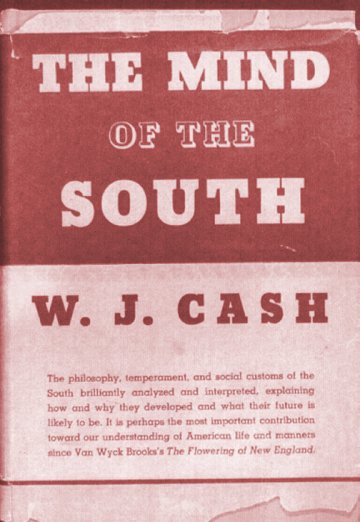« January 25, 2015 - January 31, 2015 | Main | February 15, 2015 - February 21, 2015 »
February 13, 2015
Happy Birthday, EJB

Posted by JD Hull at 10:06 AM | Comments (0)
February 12, 2015
UPDATED: In federal trial court testimony, can you sneak your witness's religion into evidence? Do you want to?
My business litigation practice over the years has been chiefly in federal courts before one of our roughly 900 appointed federal judges. Trials get conducted under the straightforward federal procedural (FRCP) and evidence (FRE) rules. Only occasionally are my clients in state courts where in my experiences most jurists (1) are popularly elected, (2) openly provincial, (3) not overly-concerned with legal scholarship and (4) have their thumbs up their asses. Call me an elitist, a bomb-thrower or disrespectful but I'm fed up with judges who don't give a damn--and federal judges usually do give a damn.
Anyway, I've long thought that nearly all evidence/mention of person's religion or 'church life' has zero place in the courtroom. Interestingly, one longstanding general evidence rule in support of that idea is coming up a great deal more in the last 10 years or so. Rule 610 of the FRE is brief. "Religious Beliefs or Opinions: Evidence of a witness’s religious beliefs or opinions is not admissible to attack or support the witness’s credibility."
It's a good rule. A witness while testifying should not mention his or her faith or religion ("I'm a Baptist" or "I attend the Church of the Final Thunder) or say things like "I was talking the other day with [Pastor Joe/my Bible Study Group]" as it tends to suggest that the witness is more worthy of belief or a "good" person as a result of the connection to a religion. For purposes other than supporting or attacking credibility, a witness's religion or indicia of that religion ("I was in church when my ex-wife was blown away") can come in as evidence and regularly does. Religion, church and church life are still a big part of the lives of many.
It's interesting to think about. I learned this witness rule (i.e., FRE Rule 610) 25 years ago in law school. But it has been only in the past 10 years or so witnesses, often aided by their attorneys, seem to be trying to score brownie points with a judge or jury by sneaking their religious life into the proceedings. Why? I have no idea--except to speculate that with some populations in America religion or faith is a kind of moral merit badge people think they need to be socially accepted. That may be true, for instance, in certain parts of the American south, Appalachia and the Midwest. And, sure enough, that's where you see it the most.
In Ann Arbor, Michigan, Madison, Wisconsin, the northwestern states, and several California counties, on the other hand, religion may be much less important--and even a bad thing to some jurors. There is a growing chorus of respectable people all over the world who think that every religion as embraced by some is unproductive if not a form of mental illness. America contains a few geographic areas where groups of these "progressive" anti-religion people seem to live, too.
The way to keep this information out as an indicia of character or credibility? That's easier. You will probably first hear this kind of testimony in depositions before trial. If it comes up, you can file a motion to exclude (or motion in limine) under Rule 610 before trial for an order that this kind of testimony will not come in as evidence. Failing that, you can object to the testimony as it comes in, move to strike, and ask the judge to tell the jury that they must disregard the testimony. You may want to think carefully about how you do it if you do it in front of a jury.*
*My thanks to two fine trial attorneys, Oregon's David Sugerman and New York City's Eric Turkewitz, for a few if not all of the better ideas in this post.
.jpg)
Posted by JD Hull at 09:28 AM | Comments (0)
February 10, 2015
The Teaching President: Obama got it right at the prayer breakfast. He was pitch perfect.
Last week when President Obama pointed out that "slavery and Jim Crow all too often was justified in the name of Christ”, lots of people blew tubes. To be fair, however, his observation is not only true, it's an understatement. If you are not convinced, for whatever reasons, do see Joshua Rothman's President Obama, the National Prayer Breakfast, and Slavery at We're History, an interesting and much-needed site which in large part focuses on history behind the news. Rothman, a professor of Southern History at the University of Alabama, obviously has the chops to write this article. Some Rothman excerpts:
It is hardly unusual for President Obama to elicit criticism, of course, but the criticisms in this instance are particularly odd because, as a matter of history, the contention he put forth at the National Prayer Breakfast is so obviously true. With regard to the defense of slavery especially, Christian justifications for the institution were so ubiquitous in the American South before the Civil War that the only real challenge is in listing their variations. Slavery’s defenders routinely turned to the Old Testament and observed that the Hebrew patriarchs were all slaveholders and that the laws of the ancient Israelites were rife with rules about slaveholding.
Looking to the New Testament, they pointed out that Christ himself never condemned slavery, took comfort from the Epistle to Philemon in which Paul urged the enslaved fugitive Onesimus to return to his master, and regularly cited verses commanding that slaves be obedient and submissive. Some defenders made a case for the notion that people of African descent were the lineage of Noah’s son Ham condemned by God to be eternal servants and thus a divinely sanctioned enslaved race, and others argued that slaveholding was part of white southerners’ religious duty to bring Christianity to African heathens.
So vital was Christianity to the southern defense of slavery that some historians have estimated that ministers penned roughly half of all proslavery literature in the decades after 1830, though it was hardly only ministers like Baptist leader Richard Furman who one might have heard state that “the right of holding slaves is clearly established in the Holy Scriptures.”
I'm not a rah-rah true believer Obama person--but I think he's one of the most interesting public figures in history. I voted for Obama only the second time around and even then reluctantly. (Part of it is when I look at Romney's eyes while he's talking I always get the strange feeling that someone or something else is driving...) But Obama's comments at the breakfast were historically accurate and pitch perfect, even if you view them as superfluous.

Posted by JD Hull at 09:10 AM | Comments (0)